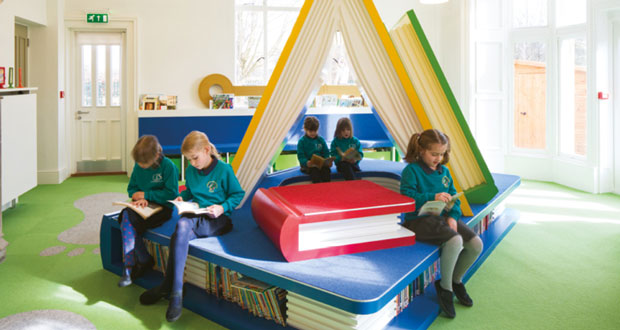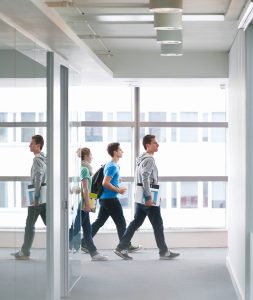Schools are not just about academic success, they play a much broader role in our society. It’s why FM, within the context of the ESG principles – Environmental, Social and Governance, has never been as important as it is today, says Adele Cooper, Sector Director for Education at VINCI Facilities
Schools are centres for education, but they also form the heart of the surrounding community. They are often seen as a focal point, a benchmark for how society functions. That means as well as the education performance indicators they are measured against, there are compliance and wellbeing KPIs too. This is ESG and it is prevalent across all public estates.
It might not be spelled out this way by Ofsted, but no matter what the acronym, it makes sense that all of a school’s facilities are up to date and fully functioning. We recommend focussing on three areas – sustainability, reducing carbon and compliance. It is about aligning your FM and building services programme for your school with the UN’s Sustainable Development Goals. Do that and you have an education asset that adds value as a facility and as a working example to the students and surrounding community. That’s why we invest time in creating gardens for schools and extra-curricular facilities for the parents, friends and students at the school.
SUSTAINABILITY
Sustainability means a lot more than it used to. For us, it is about ensuring communities thrive. What’s more, this sense of doing the right thing, ethically and morally, is now reinforced by an acceptance across society, including our customers and end users in sectors beyond education, that action is required to combat climate change, mitigate risk as much as possible and decarbonise what we do. The lockdown in 2020 and the pandemic generated more understanding about local changes to the environment because we could all see and experience more within our local communities. We are all more aware of wider climate issues because of local campaigns, COP26 and more publicity around the UN Sustainable Development Goals as well as our own business and Government’s targets. But now, more organisations are working to the ESG acronym – Environmental, Social and Governance.
ESG has helped everyone understand that everything is linked. You can’t partition sustainability. For instance, wellbeing, environmental issues and carbon reduction are all connected through good governance. So, for example, encouraging people to adopt a more circular view of how we use materials is a great way of reducing CO2, but it requires everyone to buy into the concept. It is too easy to think of it as diverting materials away from landfill. Circularity is about reuse, reduce and recycle but it is also about procuring better – we have moved PV panels from decommissioned buildings to operational schools for example and wherever possible recycle furniture. We actively look for local organisations, from youth clubs, young offender groups or community schemes to which we can donate chairs, tables and reconditioned
IT kit to add value. We need to apply the same logic we are recommended as consumers – buy less, but when we do buy products, choose products that are better quality that last.
To improve the lifecycle of what we have we must first understand how we use it – most importantly we need to assess the need for it in the first place. That is intrinsically linked to a core FM service we offer – asset management. Just as on consumer advice programmes we are all told to stop and think before we buy – so procurement teams, office managers and site teams should pause before placing an order, look at the long-term impacts and the asset management data. It is why across the schools we manage we have installed LED lighting – in the longer run it is more effective, efficient and sustainable. Buying better means being more sustainable and meeting our environmental obligations.
Asset management is at the heart of what we do for schools right across the country, from Derby and Sheffield in the Midlands and North of England to Newport in South Wales. Carbon reduction is central to this, but so too is efficiency. We have set up an energy working group that takes an overview of our projects. Our specialist advisors in the use of energy, power and water work with our schools and the FM teams. They monitor the behaviours in our schools and recommend changes for more effective and efficient usage, to cut emissions and save money at the same time. Everyone is being hit by rising prices – not just at home but at work and at school.
We work to improve the reliability of the systems where we can provide comfortable learning surroundings, so that students are engaged and focused on their education. It also means addressing operational costs, introducing simple controls and measures to drive efficiency. Likewise, we work with teams to reduce water consumption and look at ways of reusing water – for the school gardens or sports fields.






